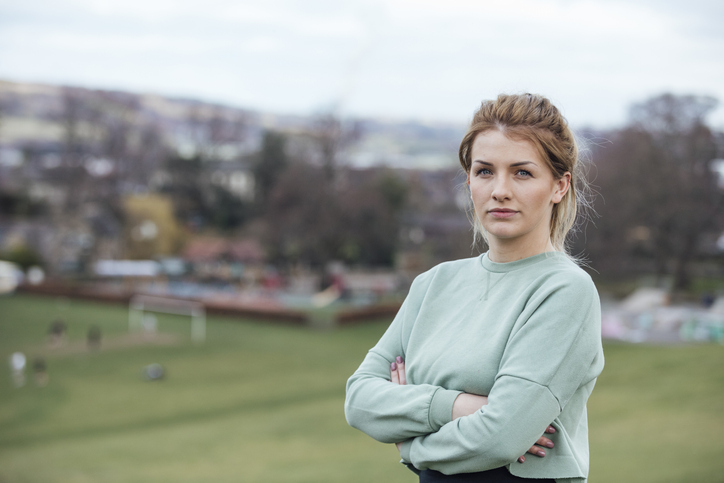Our childhood experiences don’t just fade away—they shape how we connect with others as adults. From being the new kid to dealing with bullies or overprotective parents, some early moments can make forming friendships tougher than we realize. Here are 15 ways your childhood might influence your ability to build close, lasting friendships today.
1. Life as the “New Kid” on Repeat

If you moved a lot as a kid, you probably became an expert at being the “new kid.” While you met plenty of people, you might have learned that friendships don’t always stick around. You may have built walls to protect yourself, making it tough to get close to others now. As an adult, putting yourself out there might feel risky, with that old fear of saying goodbye lingering in your mind.
2. The Lasting Sting of School Bullies

Getting bullied leaves scars that don’t just fade with time. If your childhood involved teasing, exclusion, or outright cruelty, that sense of insecurity can stick with you. Even if the bullies are long gone, you might still fear judgment, making it tough to open up to new people. Letting your guard down can feel unsafe, and forming close friendships might seem like a mountain too steep to climb.
3. A Sheltered Childhood

Overprotective parents may mean well, but they sometimes keep you from learning key social skills. If your parents shielded you from life’s little conflicts, you may have missed learning how to handle them independently. Now, as an adult, making decisions in friendships might feel like walking through a maze, unsure how to navigate the natural ups and downs of relationships.
4. Flying Solo: The Only Child Experience

Growing up as an only child means you probably had fewer chances to experience sibling drama—and the social skills that come with it. While you could still make friends, you might not have gotten as much practice with the give-and-take that comes with maintaining relationships. Now, as an adult, navigating friendship dynamics like compromise or dealing with conflict could feel a little foreign.
5. Growing Up Under Surveillance

Strict parents watching your every move can make friendships feel like something you need permission for. If your parents dictated who you could be friends with, you might have grown up feeling hesitant about forming your connections. As an adult, you could find yourself second-guessing whether your friendships are “good enough” or you can trust people outside your family’s expectations.
6. Toxic Relationships as Your Role Models

If you grew up surrounded by toxic relationships, you might have learned that manipulation, jealousy, or drama are just part of the deal. Without seeing healthy friendships modeled for you, it’s easy to fall into similar patterns as an adult. Finding balanced, supportive friendships can feel like searching for something you’ve never seen before.
7. Emotional Needs Left Unmet

If your childhood home wasn’t a place where emotions were welcomed, you may have learned to bottle them up. Expressing feelings might feel unnatural or even uncomfortable now. Friendships often require vulnerability, but if you weren’t encouraged to be open as a kid, you might struggle with letting others in and trusting them with your emotions.
8. Feeling Like the Odd One Out

Ever felt like you just didn’t fit in as a kid? That feeling can stick with you well into adulthood. You might have a sense of social insecurity if you had a different personality, background, or interests. Even now, you may worry that others won’t understand you or that you’ll never find people who “get” you, making it harder to form deep connections.
9. Social Anxiety that Never Faded

If childhood shyness or anxiety was part of your life, it might not have disappeared with age. As a kid, avoiding social situations meant missing out on the practice others got in building friendships. Now, meeting new people or starting conversations could still feel overwhelming, making friendship-forming feel more like a chore than something enjoyable.
10. All Work and Zero Play

Friendships might have been an afterthought if your childhood was all about school and success. Packed schedules and high expectations can mean you have much time to form lasting connections. As an adult, balancing work and personal life could feel tricky, and you might not see friendships as valuable as professional achievements.
11. Home Was a Battleground

Growing up in a house filled with conflict can leave you feeling like relationships are full of drama. When home life is chaotic, it’s easy to believe friendships will bring the same turbulence. You might avoid close friendships or always expect conflict, making it tough to relax and trust that a relationship can be stable.
12. Forced into the Caregiver Role

If you took on the role of caregiver as a kid—whether for siblings or even your parents—you likely learned to put others before yourself. While being responsible is admirable, it often comes at the cost of your social development. Now, as an adult, prioritizing friendships might feel like a luxury you can’t afford, with the habit of caring for others still dominating your time.
13. No One Cheering You On

A lack of encouragement during childhood can leave you with lingering self-doubt. If you didn’t hear much praise growing up, it’s easy to believe you don’t bring much to the table in friendships. As an adult, this might appear as insecurity, making you question whether others enjoy your company and preventing you from building strong, trusting relationships.
14. Exclusion from Social Norms

Not fitting into the societal norms as a kid—whether due to race, gender identity, or other factors—can make you feel like an outsider. These experiences of exclusion can carry over into adulthood, making you hesitant to form friendships. You might worry that others won’t understand or accept you, holding you back from connecting with new people.
15. A Traumatic Event

Experiencing trauma or loss at a young age can shape how you approach relationships for years. Going through something painful can make you wary of forming deep connections, fearing more hurt. As an adult, this might lead you to keep people at arm’s length, even when you crave deeper friendships.




